I don’t have to master it, as long as I don’t fuck it up. I didn’t grow up living in Brazil, so If I make a bossa nova song, there may be elements I’m missing. But I have listened to enough music from that genre. And also, it’s more just a feeling. I trust my ear, and I trust my taste, but I also just try to put my spin on it.
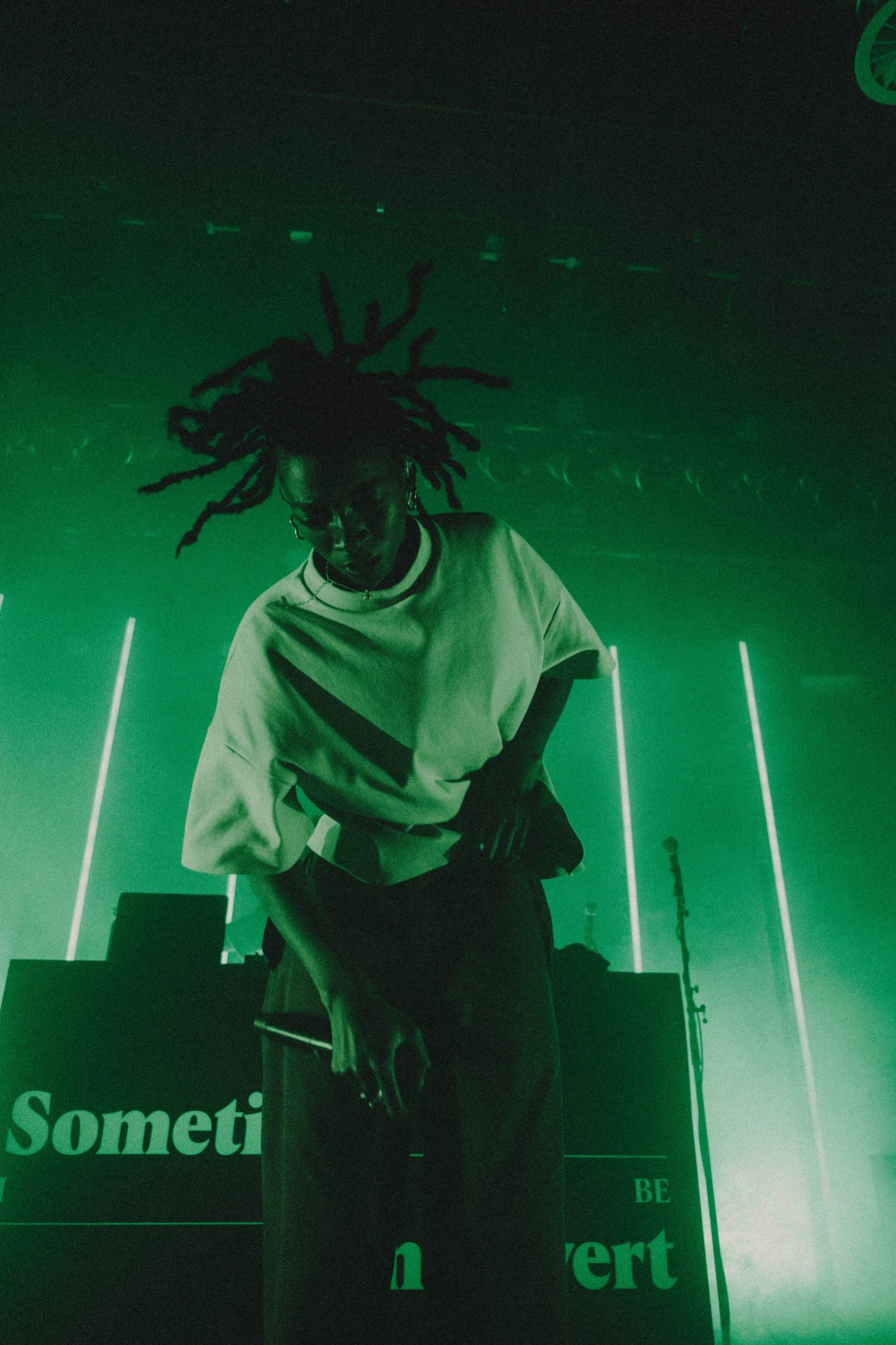
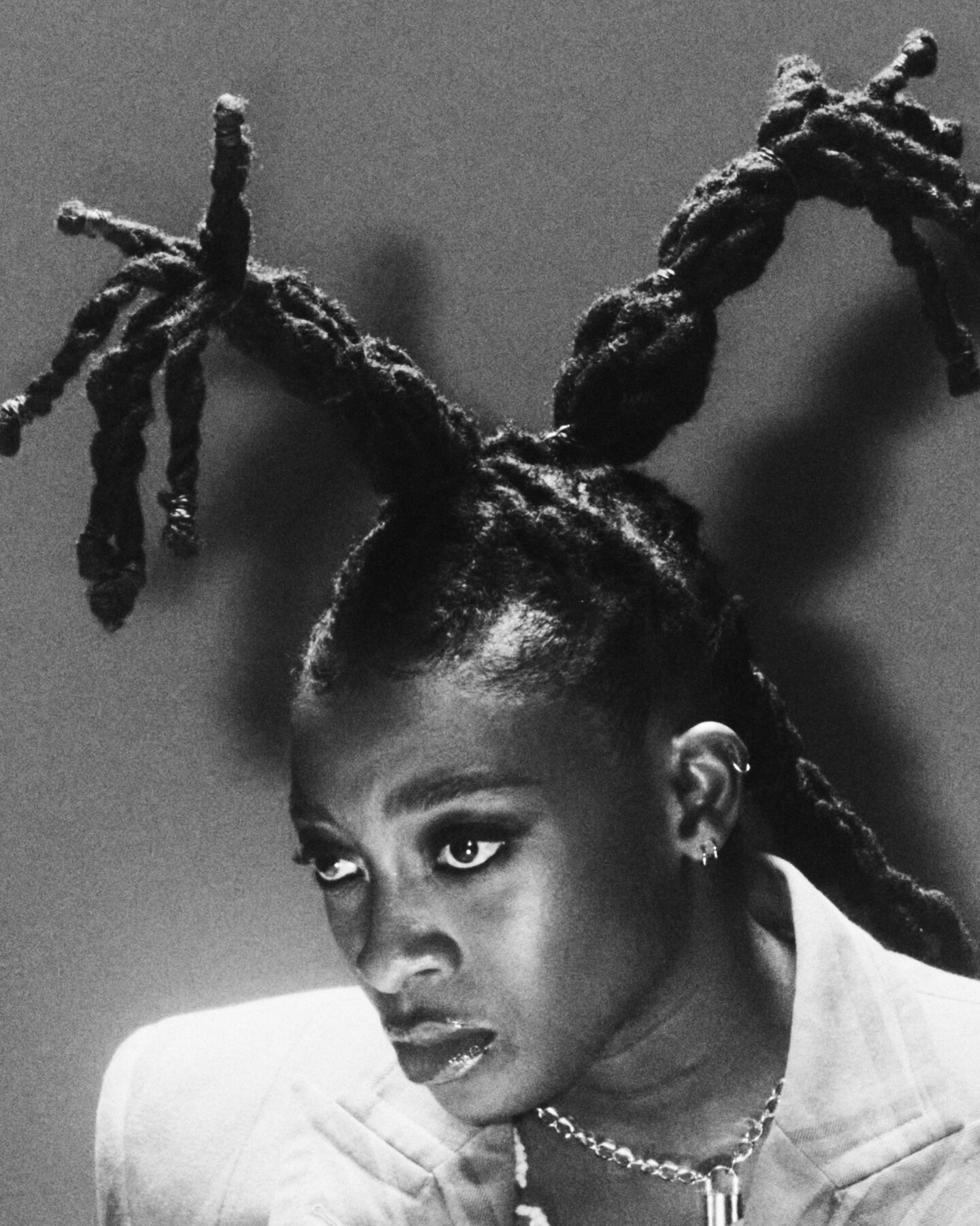
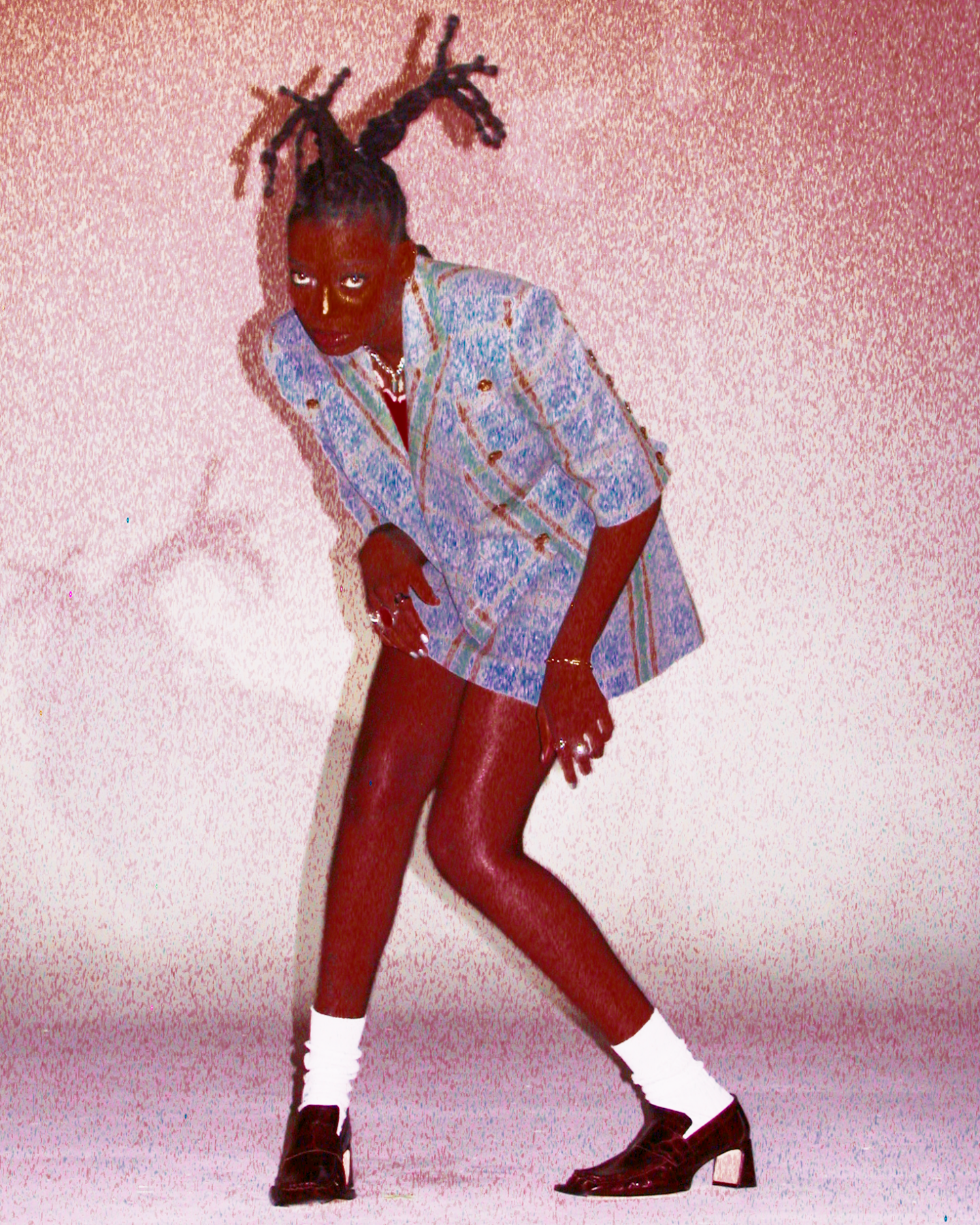
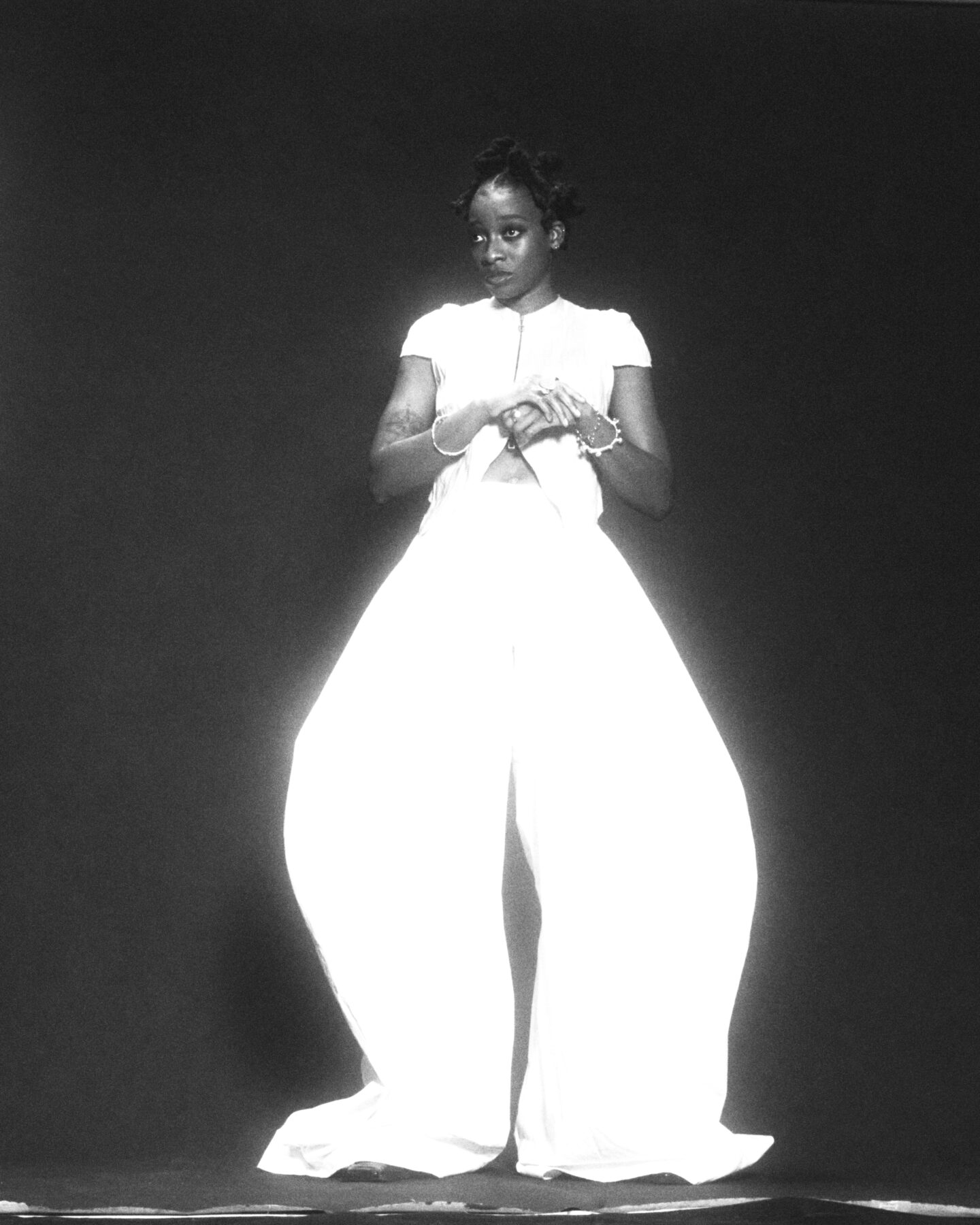
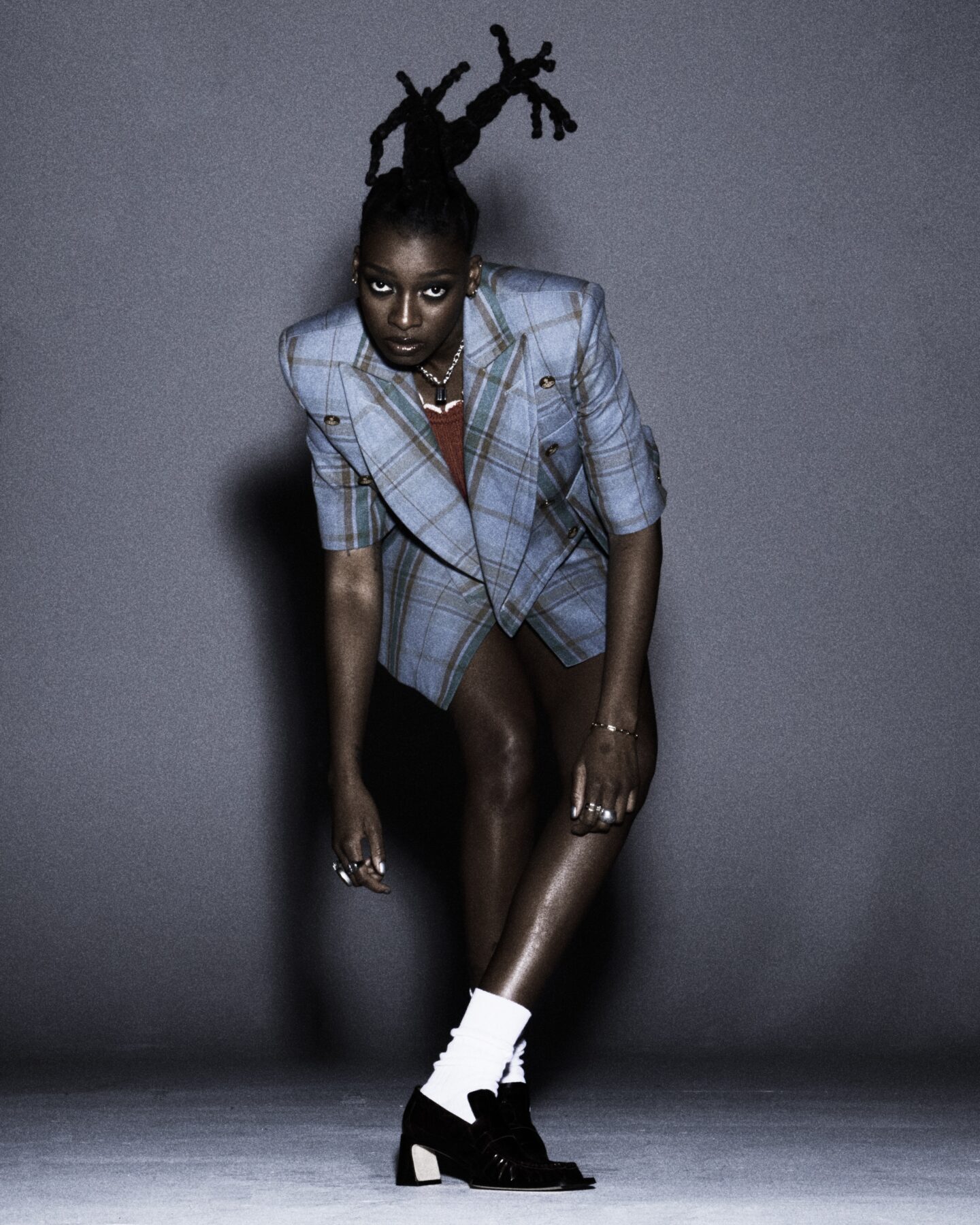
IN CONVERSATION WITH LITTLE SIMZ
Few artists in contemporary music manage to blend introspection, lyrical mastery, and genre-defying sound as seamlessly as Little Simz. Hailing from North London, the rapper, actress, and storyteller has carved out a space entirely her own, earning critical acclaim and a loyal global following. With a voice that’s both fierce and vulnerable, and a catalogue that pushes boundaries with each release, Little Simz is not just shaping the future of UK hip-hop—she’s redefining it.
Numéro Berlin spoke with Little Simz about her freshly released sixth album Lotus, her personal growth and creative struggles.
ON BEING BRAVE
As a person, but also as an artist: At which point in your life do you see yourself right now?
I’m just a person who is having a human experience and doing my best to live a happy, abundant life. Even when things get hard, I’m still trying my best to just keep going.
Do you see yourself as separate from your art, or do you think it’s impossible to separate the person from the artist?
It’s all encompassing me, but I can definitely tell the two apart. There are certain parts of my artistic personality that I don’t really show in my everyday life. I’m quite introverted, but I’m different on stage. Two things can absolutely be true at the same time.
Let’s dive into your music. Could you share a few moments from your new album that you’re especially proud of because they show how far you’ve come as an artist?
As an artist, working on a project is never a straight path – especially in the middle, when you start to question everything: Is this any good? Should I even be doing this? There’s a lot of self-doubt. So honestly, I’m most proud of simply seeing it through and finishing it. There are so many times you start something and never complete it because you get in your own way.
My favorite song from the album is Lotus, the title track with Michael Kumanuka and Yusef Dayes. It just feels like the album is such a journey and then it gets to this really climatic place. It’s just a really beautiful song. There’s so many nice moments within it, it just stands out – musically, lyrically, where it travels to. I’m really proud of it.
Is creating also a fight with yourself? Or is it more an act of pleasure and joy? Or both? How do you look at that?
I’m really just trying to be a kid and create – it feels like play. And sometimes, it’s therapeutic, especially when I have things I need to get off my chest. There’s so much I want to say, and making music is a way for me to process my emotions. I often find it hard to open up to people, but it’s much easier for me to write things down and record them. So, it’s a bit of both – depending on how I’m feeling.
How important is it for an artist to keep their inner child alive?
It always has to be there, even when the it’s about heavy or more grown-up stuff. In many ways, it does the real work. It reminds you why you do what you do, why you started in the first place.
How much hardship are you willing to endure when something truly matters to you? Would you say having the patience to let something unfold over time is a distinctive part of who you are?
How do you handle success and fame today, and how do they shape your art?
No one knows how long anyone will stay relevant because everything moves so fast. Of course, if you’re established and have built your place brick by brick, you can feel confident in that. But I also believe there’s value in making the path easier for the next generation. Not everyone who comes into music has to struggle the way I did. If there’s a quicker way, that’s amazing. I don’t think struggle is always necessary.
It’s strange how being famous almost feels like a career in itself. It’s not always about being recognized for your music or earning respect through your craft; sometimes, you’re just famous for the sake of being famous. Honestly, I don’t think many people truly understand what fame really means. With fame, you can’t go anywhere without being stared at. If people really knew what that was like, I’m not sure they’d want it. Not all attention is good attention.
Lotus is also deeply about renewal. How many times have you reinvented yourself throughout your life, and in what ways?
Every day, I reinvent myself—sometimes as simply as putting on a new outfit. Each album brings its own set of challenges, and I try to approach them differently because I want different results. If you keep doing things the same way, you get the same outcomes. So, I make an effort to keep myself excited throughout the process, to challenge myself, to explore new themes – and sometimes revisit old ones. Reinvention is essential. As an artist, you have to find new ways, not just for others, but for yourself.
I get bored easily, which is probably why my albums have such different vibes. I have so many directions I want to explore – maybe it’s my ADHD pushing me to try different things. It keeps my music fresh and exciting. There’s electronic sounds, Afrobeat rhythms – it all comes together to create a real journey where I can tap into different sides of myself.
Do you think it’s important to master each genre before being able to mix them all together?
For all of that, you must know yourself really well. What does authenticity mean to you?
Could you share your perspective on the current climate in music? I get the sense that the pressure is coming from multiple sides. The ongoing discussions around vocal culture in recent years seem to have had an impact on creativity, making it feel somewhat constrained. How do you see this?
It’s tough for artists these days because there’s this constant expectation that you always have to know exactly what to say. The more pressure you feel, the more limited you become creatively. What excites me most about art is when I don’t fully understand it. I don’t have to like every piece in an exhibition – I can stand there, unsure if it’s for me, but appreciate that it’s challenging me.
Maybe some of that freedom is getting lost nowadays. The world just doesn’t feel like a safe space anymore. It’s harder to be vulnerable when you don’t feel safe, and that definitely affects an artist’s mindset. You hesitate to share your true feelings because you know they’ll be scrutinized. I get that too. So yes, it’s a difficult balance. I just try to create what feels authentic to me.
Great art, as you said, comes from vulnerability and pushing boundaries. I’m curious – what does it feel like to create something truly authentic and recognize it in the moment? Like when you have a piece of music and you just know it’s something really special.
Music is such an invisible art form – you can’t see it, yet when I create a piece and can almost feel it, it’s like it takes on the color red or some vivid sensation. That sense of bringing something intangible into existence makes me feel truly creative. Music isn’t just a feeling; it’s a vibration, and I believe there’s a reason it moves us emotionally.
When we made the song Blue with Sampha, he was just freely creating, and I found myself crying because what he was expressing touched me deeply – on a level even he might not have been fully aware of. It’s moments like that that remind me how music connects us. It’s not just about me; collaborators bring so much to the process, shaping what the music ultimately becomes.
“The whole process was a crazy, crazy, crazy experience, crazy.”
Your name actually means “brave woman,” doesn’t it? I’m curious—what does bravery mean to you personally? Have you ever thought about what truly defines a brave woman in your eyes?
It’s someone who really owns their truth and isn’t afraid to speak up for themselves. I haven’t always done that. I’ve had moments where I look back and think, Why didn’t I say no? Why didn’t I stand up for myself? But with time and growth, I’ve really stepped into my name, if that makes sense. I’ve grown into that person – into what being brave really means to me.
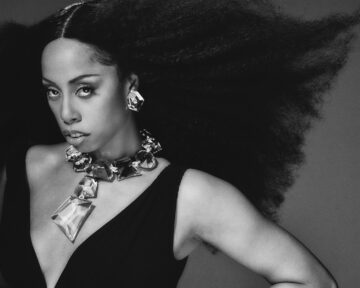
WEEKEND MUSIC PT. 84 – ROCHELLE JORDAN
Rochelle Jordan: In this interview, the British-Canadian artist talks about 15 years of…
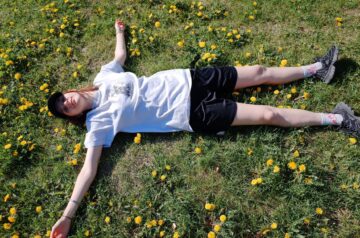
WEEKEND MUSIC PT. 83 – MAARA
DJ Maara talks about her life as a DJ, her new album "Ultra Villain" and her various…
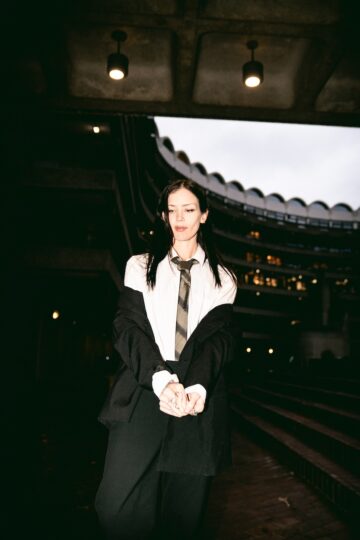
MUSIC PT. 82: RUTHLSS
As one of the featured artists on the new Houndstooth album Quantum Sound, Ruthlss brings…